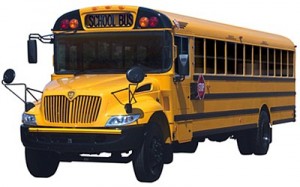Our yellow school bus, while charming-looking, was a problem in and of itself, and somewhat symbolic of the physical plant of the camp. I was its principal driver and mechanic (also with the help of Popular Mechanics), and I did what I could to keep it going . However, among the children it was simply known as The Bus to Nowhere, its repeated failures leading to all kinds of unexpected periods of roadside relaxation, which the kids and the counselors often filled with music, and which they may have enjoyed and accepted cheerfully, but which seldom got us to its destination.
This was also a period during which the states were asserting their role in education, coming up with all sorts of new rules and regulations for the running of camps. In our case, these rules spelled disaster, as we didn’t have the money with which to make the changes the State of New Hampshire wanted us to make. It would have involved junking our pool and rebuilding a new one to state specification, as well as requiring several other costly alterations to the plumbing of the bunks, the bathrooms, and the showers. Money was always a problem because Linda felt a camp should be run without too much concern about viability and finances. She was busy recreating the camp of her childhood, with all of its ideals, its informality, and its mixture of cultures and races, without pushing any particular political ideology. In order to keep to those ideals meant keeping the camp small, at no more than 60 campers, and making sure we had a reasonable mix of minority kids by offering scholarships to those who couldn’t afford the cost of sending a kid to camp. I, on the other hand, was more mercenary. I wanted to make Apple Hill a paying proposition. I wanted to increase the number of kids we could accommodate so that there was at least a chance of making money. In the event, when the state wanted us to make costly changes to the physical plant, we didn’t have the funds to make them, and we didn’t want to borrow. We had to close Apple Hill, and try to sell it, and sell it we did, eventually, to some lovely people who wanted to establish a music camp on the site. Not only that, but they felt that music could be made a bridge between people with conflicting ideologies of life, and they invited both Israeli and Arab kids to come from their distant countries to make music together. It seems to have worked because the camp is still there, although the big elm had to be cut down because of Dutch elm disease. They established a foundation, were a non-profit, and so had certain tax advantages which we didn’t have (although we certainly hadn’t made any profits), and they had donors who contributed to the running of the camp. Even with all that, the last time we visited Apple Hill, they were also under financial pressure to make more changes the state required. Running a small camp, with a humanistic outlook is not a simple project.
However, between the time we closed our Apple Hill and sold it to the people who made it a music camp, we were also visited by another interested buyer.


Certainly that is not ideal?
Shove your face in his butt? Don’t people get pink eye from that kinda thing?